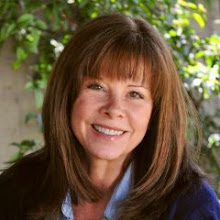
Occasionally I receive questions and do my best to give helpful answers. I will share those I think may be of interest to you, the reader.
Should you wish to send me your own query, click "Contact Me" on the sidebar.
Here is a question and my answer:
Mel,
First I would like to thank you on behalf of all the students you have helped in these past years. I am starting an afterschool Shakespeare Club here at my school, where I was recently hired to work with a Pull out Program of GT students. Since I do not want leave any of the students feeling left out I want to start an Afterschool Shakespeare Club where all the 3rd, 4th, and 5th grade students will have an opportunity to participate. Where do I start? To be honest I do not know, I am doing all this on my own with no help. I know I can get it accomplished not for my talent but for the love, passion, and energy that I am willing to give these students. I was an ELL myself when I came to the States and I know what most of these students are going through.
I would appreciate any suggestions, tips, comments that you can suggest to get this Club up and running as soon as possible.
I'm excited that you want to do this. I'm not sure what "GT students" are but here's a little advice.
Pick up, in a library or bookstore or on Amazon, copies of "A Child's Portrait of Shakespeare" and "A Midsummer Night's Dream" by Lois Burdett. Lois was a second-grade teacher (now retired) who started doing Shakespeare with her students.
The first book is a way kids can read aloud about who Shakespeare was. Also, find library books for kids about Shakespeare and the Elizabethan period and have them write in journals and draw pictures of things they learn with you.
Lois has adapted many of Shakespeare's plays for children. My first year I took Lois' version of "A Midsummer Night's Dream" and added some more of the original text. I created a narrator, using her writing, and The Shakesepare Club was able to stage a 45-minute performance. The kids don't have to memorize lines but get them to read really well and spend time helping them learn new words from the text.
You might want to begin your club with no more than 15 kids. It's a lot to take on. It's a good idea to start with a little deep breathing to get them settled. A few physical warm-ups because actors have to be in good shape. Some humming to warm up their voices.
Together you can all figure out the plot of the play. Take a few meetings to read it through and discuss what is going on.
Good luck!







No comments:
Post a Comment
Note: Only a member of this blog may post a comment.